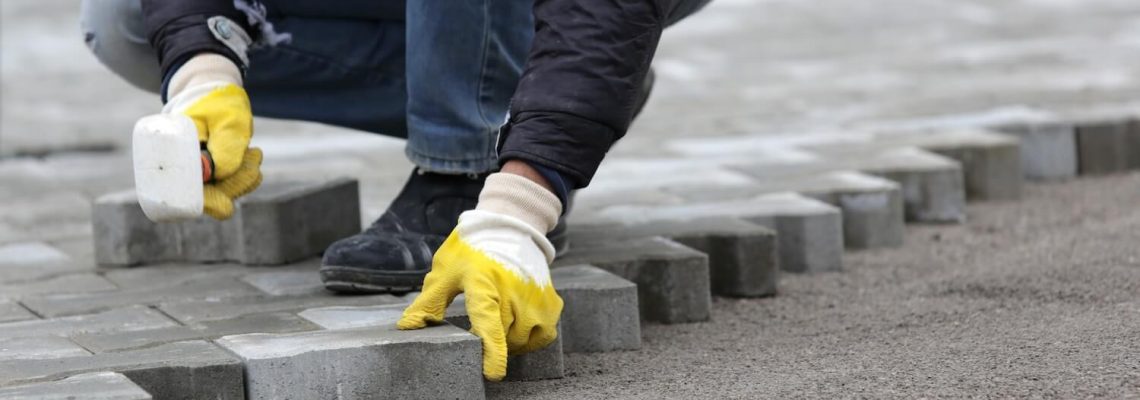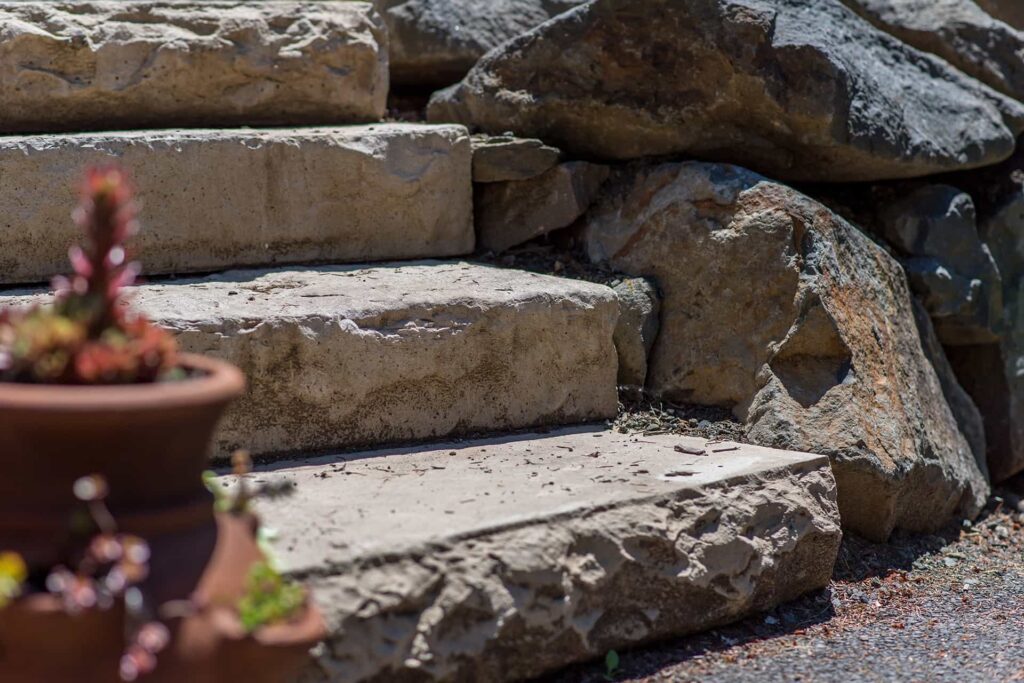Paver installation is an art and a science. When done correctly, it can significantly enhance the beauty and functionality of outdoor spaces. However, improper installation can lead to a range of problems, including uneven surfaces, poor drainage, and ultimately reduced durability. In this article, we will delve into the importance of proper paver installation and how it directly affects the longevity and durability of your outdoor surfaces.
1. The Basics of Paver Installation
Before diving into the intricacies of paver installation, it’s essential to understand the basic components involved. Pavers are individual units made from various materials, including concrete, brick, and natural stone. They are typically laid over a base of compacted gravel and sand, which provides stability and facilitates proper drainage.
The installation process involves several key steps:
- Site Preparation: The area where the pavers will be installed must be excavated to the appropriate depth. This ensures that the pavers will be level with adjacent surfaces and allows room for the base materials.
- Base Installation: A layer of crushed gravel is spread and compacted to create a stable foundation. This is followed by a layer of coarse sand, which is screeded to achieve a uniform thickness.
- Paver Installation: The pavers are then laid in the desired pattern, starting from one corner and working outward. Spacers are used to maintain consistent spacing between the pavers.
- Edging: To prevent the pavers from shifting or spreading, edge restraints are installed along the perimeter of the installation area.
- Final Compaction and Jointing: Once the pavers are in place, the entire surface is compacted to ensure stability. Sand or polymeric jointing material is then swept into the joints between the pavers to lock them in place and prevent weed growth.
2. The Importance of Proper Drainage
One of the most critical aspects of paver installation is ensuring proper drainage. Water pooling on the surface or seeping beneath the pavers can lead to a range of issues, including:
- Sinking and Shifting: Excess water can cause the base materials to wash away, leading to uneven surfaces and pavers that sink or shift over time.
- Frost Heaving: In colder climates, water trapped beneath the pavers can freeze and expand, causing the pavers to heave or crack.
- Mold and Mildew Growth: Moist conditions beneath the pavers can create an ideal environment for mold and mildew, which can discolor the pavers and compromise their integrity.
To ensure proper drainage, the base materials should be sloped away from structures and equipped with a permeable geotextile fabric to prevent water infiltration. Additionally, the surface of the pavers should be slightly sloped to encourage water runoff.
3. The Role of Compaction
Proper compaction is another crucial factor that directly impacts the durability of a paver installation. Inadequate compaction can result in:
- Settling: Over time, the pavers may settle unevenly, creating tripping hazards and unsightly dips in the surface.
- Paver Movement: Without sufficient compaction, the pavers may shift or move under foot traffic or vehicular loads.
- Base Failure: Poor compaction can lead to the deterioration of the base materials, compromising the stability and longevity of the entire installation.
To achieve optimal compaction, a mechanical compactor should be used to compact the base materials in layers, ensuring that each layer is uniformly compacted to the desired density. This process not only enhances the stability of the paver installation but also helps to prevent settling and movement over time.
4. The Importance of Professional Installation
While DIY paver installation may seem like a cost-effective option, hiring a professional is often the best way to ensure a durable and long-lasting result. A professional installer will have the knowledge, experience, and equipment necessary to properly prepare the site, select the appropriate materials, and execute the installation according to industry best practices.
Additionally, many manufacturers offer warranties on their pavers, but these warranties often require that the installation be performed by a certified professional. Failure to comply with these requirements can void the warranty, leaving you responsible for any future repairs or replacements.
5. Maintaining Durability Over Time
Even a properly installed paver surface requires regular maintenance to ensure its long-term durability. This includes:
- Regular Cleaning: Sweeping or washing the surface to remove dirt, debris, and organic matter can prevent staining and deterioration.
- Joint Refilling: Over time, the jointing material between the pavers may wear away or become dislodged. Periodic refilling of the joints will help to maintain the stability and appearance of the installation.
- Sealing: Some types of pavers benefit from periodic sealing to enhance their color, protect against stains, and reduce the growth of weeds and moss.
- Inspection and Repair: Regular inspections can help to identify and address any issues, such as cracked or loose pavers, that could compromise the integrity of the installation.
6. Choosing the Right Materials for Your Project
The durability of a paver installation is not solely dependent on the installation process itself but also on the quality of the materials used. Different materials offer varying levels of durability and resistance to environmental factors such as UV rays, freeze-thaw cycles, and chemical exposure. Here are some popular options:
- Concrete Pavers: These are durable and come in a wide range of colors, shapes, and sizes. They are resistant to cracking and can withstand heavy loads, making them suitable for driveways, walkways, and patios.
- Brick Pavers: Known for their timeless appeal and natural beauty, brick pavers are durable and can last for decades when properly maintained. However, they may be more susceptible to cracking in areas with frequent freeze-thaw cycles.
- Natural Stone Pavers: Materials like granite, limestone, and sandstone offer a unique, natural look and exceptional durability. However, they can be more expensive and require regular sealing to protect against staining and weathering.
- Permeable Pavers: Designed to allow water to permeate through the surface, permeable pavers are an eco-friendly option that helps to reduce runoff and prevent flooding. They are typically made from concrete or recycled materials and offer comparable durability to traditional pavers.
When selecting materials for your paver installation, consider the specific requirements of your project, including the intended use, climate, and aesthetic preferences. Choosing high-quality materials that are suited to your needs will help to ensure a durable and long-lasting result.
7. The Impact of Climate and Environment
The climate and environmental conditions in which the pavers are installed can have a significant impact on their durability. Extreme temperatures, fluctuating humidity levels, and exposure to salt or chemicals can all affect the performance and lifespan of the pavers.
In areas with harsh winters, freeze-thaw cycles can cause the pavers to expand and contract, leading to cracking and heaving. In coastal regions, exposure to salt and moisture can accelerate weathering and deterioration. To mitigate these risks, it’s essential to select materials and installation methods that are appropriate for the local climate and environmental conditions.
Additionally, proper drainage and the use of sealants can help to protect the pavers from water damage, while regular cleaning and maintenance can help to prevent the buildup of dirt, debris, and organic matter that can compromise their appearance and performance over time.
8. The Importance of Ongoing Stone Maintenance
As previously mentioned, regular maintenance is crucial for preserving the durability and appearance of a paver installation. In addition to cleaning, joint refilling, and sealing, other maintenance tasks may include:
- Weed Control: Applying a pre-emergent herbicide or using a weed barrier beneath the pavers can help to prevent weeds from taking root and spreading throughout the installation.
- Repairing Damage: Promptly addressing any cracks, chips, or loose pavers can prevent further damage and extend the lifespan of the installation.
- Releveling: Over time, settling or shifting may occur, causing the pavers to become uneven. Releveling the pavers by adding or removing base material can restore the surface to its original condition and improve its appearance and functionality.
By investing time and effort in regular maintenance, you can prolong the lifespan of your paver installation and ensure that it continues to enhance your outdoor spaces for many years to come.
9. The Importance of Hiring a Professional for Paver Installation
While the allure of DIY projects can be tempting, when it comes to paver installation, hiring a professional is often the best choice for ensuring a durable and long-lasting result. Here are several reasons why professional installation is crucial:
Paver Expertise and Paving Experience
Professional paver installers have the knowledge, training, and experience to tackle even the most complex installation challenges. They understand the intricacies of site preparation, base installation, drainage, and compaction, and can identify and address potential issues before they become major problems.
Proper Equipment and Tools
Professional installers have access to specialized equipment and tools that are essential for achieving optimal results. From mechanical compactors and laser levels to cutting tools and edge restraints, these tools enable them to work efficiently and accurately, ensuring that the pavers are installed correctly and securely.
Compliance with Industry Standards and Regulations
Professional installers are familiar with local building codes, regulations, and industry standards governing paver installation. By adhering to these guidelines, they can ensure that the installation is structurally sound, safe, and compliant with all legal requirements.
Paver Warranty Coverage
Many manufacturers offer warranties on their pavers, but these warranties often require that the installation be performed by a certified professional. By hiring a professional installer, you can ensure that the installation meets the manufacturer’s specifications and requirements, thereby preserving your warranty coverage and protecting your investment.
Time and Cost Efficiency
While DIY installation may seem like a cost-effective option, it often requires a significant investment of time, effort, and resources. Professional installers can complete the project more quickly and efficiently, minimizing disruption to your daily life and ensuring that the installation is completed on time and within budget.
Ongoing Project Support and Stone Maintenance
Professional installers often provide ongoing support and maintenance services to help you protect and preserve your investment. Whether you need advice on cleaning and maintenance, or assistance with repairs and replacements, they are there to help you keep your paver installation looking and performing its best for years to come.
Conclusion
Proper paver installation is a complex process that requires careful planning, attention to detail, and professional expertise. From site preparation and base installation to drainage, compaction, and ongoing maintenance, each step plays a crucial role in determining the durability and longevity of the finished surface.
By investing in a high-quality installation performed by a certified professional and adhering to a regular maintenance schedule, you can ensure that your paver surface will continue to enhance your outdoor spaces for years to come. So, the next time you’re considering a paver project, remember that laying the groundwork properly is the key to a durable and beautiful result.


